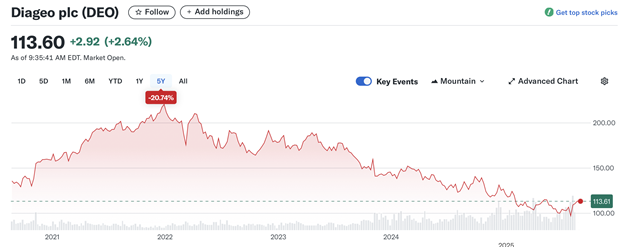Asahi shares mark weekly slide after cyberattack halts production
Following Buffett Over A Cliff
In March of 1980, shares of Warren Buffett’s Berkshire Hathaway (NYSE:BRKa), closed at $290. At the end of last year, shares were about $646,000 for a gain of more than 222,000%. A thousand dollars invested in BRK-A 1980 would be worth $2.2 million.
So why not look at the 13-F report filed by Berkshire Hathaway and simply buy the same stocks? Because this is a stupid investing trick. There are three reasons for this.
First, Berkshire Hathaway’s holding period is forever, while yours is not. Buffett has remarked on numerous occasions that his favorite holding period is forever. To put it into the quaint homespun language he is famous for:
“The stock market is a device for transferring money from the impatient to the patient.”
To see how disadvantaged investors are by benchmarking themselves against an investor who holds onto investments forever, consider the case of spirits company Diageo (NYSE:DEO). Shares have been halved since 2024, and at current prices are trading at 2012 levels. That’s more than 14 years of dead money. If you are a younger investor saving to buy your first house, Diageo would be a disastrous investment.

Second, large portions of Berkshire’s investment are held in private companies, by some estimate about 50%. Some of the private companies held by Berkshire Hathaway include Dairy Queen, Duracell, Benjamin Moore, See’s Candies, Fruit of the Loom and, famously, GEICO.
As an individual, you can’t mimic these companies or these positions. Not easily anyway. For instance, if you can’t buy Dairy Queen, then which of the hundreds of restaurant company stocks should you buy? Or paint companies or candy companies or clothing companies? If that’s the case, then you are actually in competition with Buffett by trying to find star performers.
Third and finally, if you’re an individual investor aiming for retirement, tax planning is a major component of your investing strategy. But Berkshire Hathaway doesn’t need to worry about Medicare premium surcharges, required minimum distributions, generating income in retirement, paying for college or estimated quarterly tax payments.
In short, you have very different goals and objectives than Warren Buffett and Berkshire Hathaway, and that means you need to use different tools and deploy different strategies.
If, however, you are convinced Warren Buffett is the salvation of your wealth, then you could perfectly mimic Buffett’s investments simply by investing all your assets in Berkshire Hathaway stock. Putting all of your eggs into a single basket? Now that would be a stupid investment trick.
***
Daniel J. Friedman is a founding partner and CEO of WMGNA, LLC Tax-Out Financial Solutions™, a firm that specializes in tax optimization strategies and financial planning under a subscription model.
